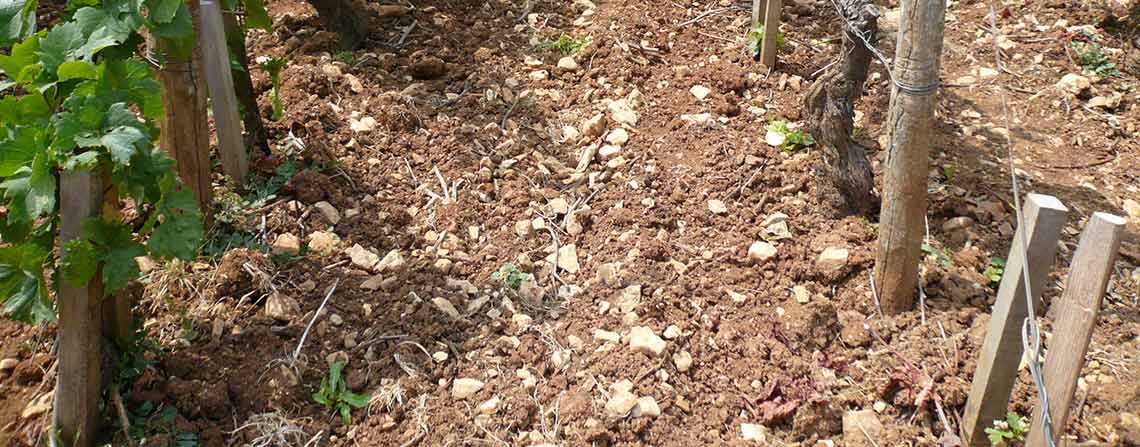Does this term mean the wine is 100% organic? Does it mean it’s “plain and simple in style”, or “plain in taste” as Merriam-Webster defines? No, no, and no. While a wine that is organic CAN be earthy, an earthy wine is not necessarily organic, and an earthy wine is often the opposite of plain — though, a plain wine can have an earthy character. Sufficiently confused? Read on.
If you have been drinking wine for a long time, you might already know the term “earthy”, and likely have experienced this characteristic. Wines described as “earthy” will have aromas and flavors of soil, minerals, vegetation, and/or wet leaves. Yes, I said soil, and yes I mean as in dirt. Believe it or not, many people find dirt — er, earthiness — to be a positive element in a wine (myself included), as it adds to a wine’s complexity.
Typically “earthy” wines include Cabernet Sauvignon, Merlot, Syrah, Pinot Noir, Aglianico, and Tempranillo, among others — though just about any red wine can pick up an “earthy” element. As you might guess, it’s believed that the earthiness comes from the soil in which the vines are planted. Generally speaking, white wines are rarely described as “earthy”, although I’ve had some wines with a component in the flavor or aroma that could be described as “mushroom” — and mushrooms come from the earth, so go figure.




